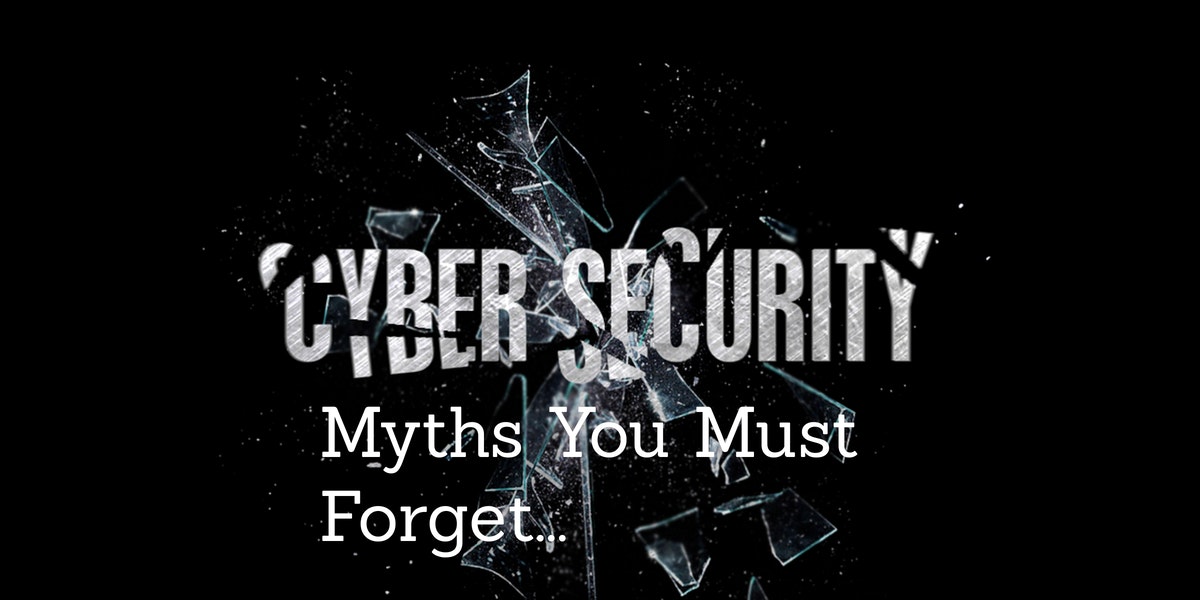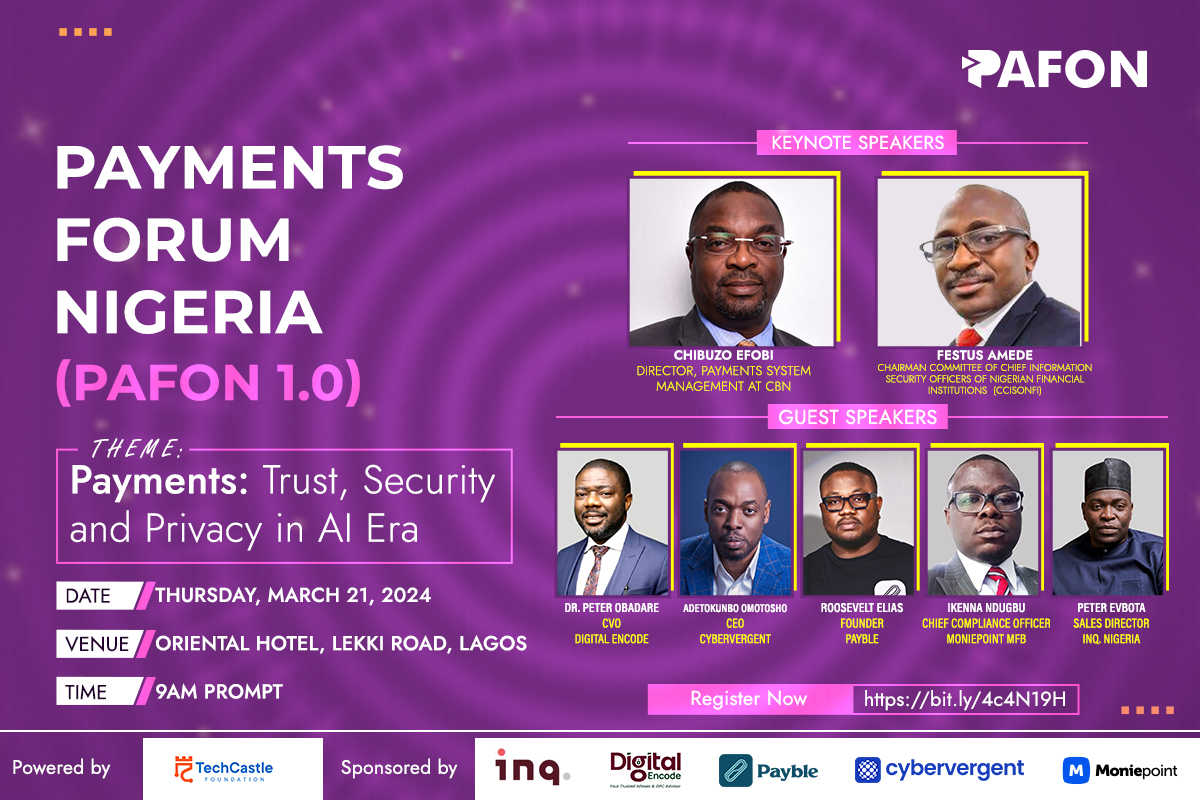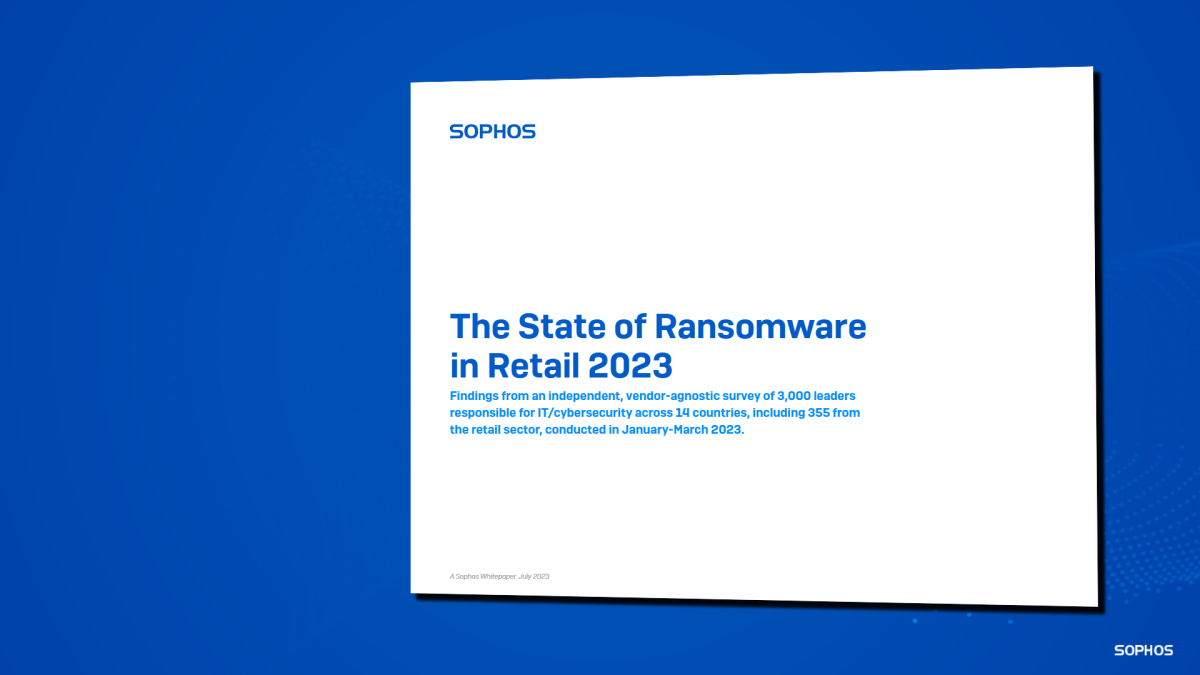TechNews
Cyber Security Myths You Must Forget, To Avoid Being Hacked!


… To know how to dispel these myths REGISTER for Sophos/Sidmach Lunch & Learn event. Email: [email protected]
By: Sandra Ani
Cyber security threats are real. The cyber traitors penetrate every facet of the economy. For instance, the Nigerian Inter-Bank Settlement System, NIBSS), disclosed that the banking industry lost the sum of N12.30 billion to various frauds between 2014 and 2017, with male accounting for 73 percent of the total fraud committed.
The Managing Director of NIBBS, Mr Adebisi Shonubi, made the disclosure at the third Annual Banking Security Summit organized by MAXUT Consulting in partnership with OneSpan, a global data security company in Lagos, recently.
Specifically, he noted that 2014 fraud volume stood at 1,461, 10,743 (2015), 19,531 in 2016 and 25,043 in 2017.
Speaking on “Industry fraud overview with focus on mobile & payments related frauds,” Shonubi said the industry lost N6.22 billion in 2014 on attempted fraud value of N7.76 billion.
Thus, because of these trends companies are even falling prey to two myths that often cloud the judgement of business owners when it comes to Cyber-attacks.
Whilst they mostly think they are safe, the myths actually increase their chances of falling in the hands of cyber-criminals and hackers.
The first Cyber Security Myth is that many business owners still believe that all cyber attacks are targeted.
This means that unless they’re specifically selected as the prey of a hacking attack, they won’t fall victim.
It is not uncommon to see businesses that believe they will not be in the sights of cybercriminals, so aren’t at risk from suffering the negative effects of a cyber-attack. You may even be one of such people with this belief, but if you ask the Western business leaders that were hit by NotPetya in 2017, they would definitely have stories to tell you that would change your mindset about cyber-attacks.
To quickly recap what NotPetya was about – it was a malware campaign launched against Ukraine by Russia, which quickly spread around the world, knocking businesses offline and doing vast amounts of damage to people who weren’t primary targets of the attack in the first place.
The original target of the attack was Ukrainian infrastructure, but it damaged — amongst other things — British advertising and pharmaceutical companies, as well as the shipping giant, Maersk!
The impact of NotPetya forced Maersk to reinstall 4,000 servers and over 45,000 PCs, with losses caused by serious business interruption estimated to amount to over $300m, despite the shipping firm never being the intended target of the attack.
Another example of how unsuspecting organizations can find themselves the victims of a major cyber attack is the incidence of WannaCry Ransomware.
The UK’s National Health Service found itself an unwitting victim of the campaign spread via an aggressive worm-like virus launched by North Korea in an effort to extort ransoms.
Despite the fact that you would wonder about the absurdity of attacking a body like NHS, yet they weren’t spared. This means that when it comes to cyber attacks, there is really no one that can be spared!
The second Cyber Security Myth is that some businesses don’t engage with cybersecurity because they believe it to be too complicated.
This is quite an irony as businesses usually have to deal with complicated issues every day, and it begs the question of why understanding cyber-security should be too complicated to figure out. Actually, it isn’t even complicated!
If your company can deal with complex data, millions of financial transactions, transportation of goods from one end to another, provision of services to diverse customers, or anything at all, cybersecurity is not something you should not be able to comprehend and deploy.
Even simple activities like ensuring systems and software are up to date can go a long way to protecting organizations from cyberattacks.
This approach could have helped organizations around the world avoid becoming victims of Cloud Hopper, a data-stealing espionage campaign, which Western authorities have attributed to China’s state-backed hacking group APT10.
Much of the campaign was based around distributing phishing emails containing malicious Word documents, which — when opened — ran macros that retrieve malware.
If the targeted organizations had applied relevant patches, the vulnerabilities exploited by the attackers wouldn’t have had any effect. And you can only blame this on poor cybersecurity or understanding of it because while the APT in APT10 stands for ‘Advanced Persistent Threat’, the attack wasn’t that advanced.
Dispelling these two cybersecurity myths from your mind can go a long way from keeping you safe against attacks that may put your business data and infrastructure at risk of loss or ransom.
To know about more myths that need to be forgotten, or get exposed to different ways to mitigate cybersecurity threats, make it a date to the Sidmach-Sophos Lunch and Learn event happening this February.
At the event, you will also learn about cost effective security dynamics, get introduced to tools that mitigate latest threats, have complete visibility and control of your IT Infrastructure. To register for this event kindly email [email protected]
Attendance is strictly by registration, as announced by the organisers.
Source: techeconomy.ng
TechNews
inq.Digital Supports Payments Forum Nigeria [PAFON 1.0]


Inq. Digital Nigeria Limited has been announced as a sponsor of Payments Forum Nigeria [PAFON 1.0] maiden edition holding this Thursday in Lagos.
inq. Digital Nigeria Limited, a subsidiary of inq. Group is an emerging leading digital and cloud solutions provider that delivers simpler seamless solutions to complex business challenges.
With offices in Lagos, Abuja, Port Harcourt and Kano, inq. provides reliable and affordable Intelligent Connectivity, SDN/NFV, Cloud and Digital services (including Edge –AI) for Nigerian businesses including those in the payment space.
Participation is FREE, however, pre-registration is required: https://bit.ly/4c4N19H.
Speaking ahead of Payments Forum Nigeria [PAFON 1,0] scheduled to take place at Oriental Hotel, Lekki Road, Lagos on Thursday, March 21, 2024 by 9am under the theme: “Payments: Trust, Security and Privacy in AI Era”, Mr. Chike Onwuegbuchi, the co-founder of TechCastle Foundation, the organisers, said the goal is to enable information exchange and knowledge sharing on key industry insights issues amongst key stakeholders, with the objective of ensuring a collaborative and proactive approach to push for policies that enable growth, tackling/mitigating fraud and limiting occurrences and losses.
Speakers
The following speakers are lined up for the Forum: Chibuzo Efobi, Director, Payments System Management, Central Bank of Nigeria (CBN); Festus Amede, Chairman, Committee of Chief Information Security Officers of Nigerian Financial institutions (CCISONFI; Dr. Adewale Peter Obadare, Chief Visionary Officer (CVO), Digital Encode Limited; Adetokunbo Omotosho, Chief Executive Officer, Cybervergent; Roosevelt Elias, Founder, Payble; Ikenna Ndugbu, chief compliance officer, Moniepoint MFB, and Peter Evbota, Sales Director at inq. Digital Nigeria Limited.
Payments Forum Nigeria is organised by TechCastle Foundation and sponsored by: inq. Digital Nigeria Limited, Cybervergent, Moniepoint, Digital Encode Limited, Payble with support from the Central Bank of Nigeria (CBN).
Business
Meet Kingsley Adonu


In the dynamic world of entrepreneurship, there are visionaries who not only navigate the business landscape but redefine it. Meet Kingsley Adonu, the Founder and Chief Executive Officer of the SMobile Group, a conglomerate that stands as a beacon of excellence and diversity in the global business arena.
Kingsley Adonu is a visionary entrepreneur and the Founder of the SMobile Group, a conglomerate synonymous with excellence and diversity. As the Chief Executive Officer, he has steered the group to remarkable heights, overseeing a spectrum of businesses that span across Telecommunications, Oil and Gas, Real Estate, Hospitality, Water Production, Agriculture, Technology, E-commerce, Energy, Sports, Entertainment, Education, Health, Logistics and Financial Services, with branches extending globally to UK, USA, China, South Africa, and Canada.
Under Kingsley’s astute leadership, SMobile Group has emerged as a major partner for MTN, evident in the impactful presence of the SMobile brand in the telecommunications landscape. His strategic insights and forward-thinking approach have positioned the group as a dynamic player in multiple industries.
Beyond the boardroom, Kingsley Adonu is a dedicated philanthropist, committed to making a positive impact in communities. His philanthropic efforts extend beyond business, reflecting a deep-seated belief in the responsibility of successful individuals to contribute meaningfully to society.
Kingsley’s influence is not confined to national borders; he has actively participated in numerous international telecom conferences, further enriching his understanding of global industry trends and fostering valuable connections with industry leaders worldwide.
With an unwavering commitment to excellence, Kingsley Adonu continues to inspire and lead the SMobile Group towards new horizons, blending business acumen with a passion for positive societal change.
TechNews
Only 26% of Surveyed Organizations Stopped Data Encryption by Cybercriminals – Sophos
Retail organizations attacked by ransomware increasingly unable to halt an attack in progress, Sophos Survey Finds, writes SANDRA ANI


- This Is the Lowest Rate of Disruption in 3 Years
Sophos, a global leader in innovating and delivering cybersecurity as a service, today shared findings from its sector survey report, “The State of Ransomware in Retail 2023,” which found that only 26% of retail organizations this past year were able to disrupt a ransomware attack before their data was encrypted.
Sophos, a global leader in innovating and delivering cybersecurity as a service, today shared findings from its sector survey report, “The State of Ransomware in Retail 2023,” which found that only 26% of retail organizations this past year were able to disrupt a ransomware attack before their data was encrypted.
This is a three-year low for the sector—a decline from 34% in 2021 and 28% in 2022—suggesting the sector is increasingly unable to halt ransomware attacks already in progress.
“Retailers are losing ground in the battle against ransomware. Ransomware criminals have been encrypting increasingly greater percentages of their retail victims in the last three years, as evidenced by the steadily declining rate of retailers stopping cybercriminal attacks in progress. Retailers must up their defensive game by setting up security that detects and responds to intrusions earlier in the attack chain,” said Chester Wisniewski, director, global field CTO, Sophos.
In addition, the report found that, for those retail organizations that paid the ransom, their median recovery costs (not including the ransom payment) were four times the recovery costs of those that used backups to recover their data ($3,000,000 versus $750,000).
“Forty-three percent of retail victims paid the ransom according to our survey respondents, yet the median recovery cost to victims who paid the ransom was four times the cost to those who used backups and other recovery methods. There are no shortcuts in these situations and rebuilding systems is almost always required. It’s better to deprive the criminals of their spoils and build back better,” said Wisniewski.
Additional key findings from the report include:
- In line with a broader, cross-sector trend, the retail sector experienced its highest rate of encryption over the past three years, with 71% of those organizations targeted by ransomware stating that attackers successfully encrypted their data
- The percentage of retail organizations attacked by ransomware declined from 77% last year to 69% this year
- The percentage of retail organizations that recovered in less than a day decreased from 15% to 9% this year, while the percentage of retail organizations that took more than a month to recover increased from 17% to 21%
Sophos recommends the following best practices to help defend against ransomware and other cyberattacks:
- Strengthen defensive shields with:
- Security tools that defend against the most common attack vectors, including endpoint protection with strong anti-ransomware and anti-exploit capabilities
- Zero Trust Network Access (ZTNA) to thwart the abuse of compromised credentials
- Adaptive technologies that respond automatically to attacks, disrupting adversaries and buying defenders time to respond
- 24/7 threat detection, investigation and response, whether delivered in-house or by a specialized Managed Detection and Response (MDR) provider
- Optimize attack preparation, including regularly backing up, practicing recovering data from backups and maintaining an up-to-date incident response plan
- Maintain security hygiene, including timely patching and regularly reviewing security tool configurations
To learn more about the State of Ransomware in Retail 2023, download the full report from Sophos.com.
The State of Ransomware 2023 survey polled 3,000 IT/cybersecurity leaders in organizations with between 100 and 5,000 employees, including 355 from the retail sector, across 14 countries in the Americas, EMEA and Asia Pacific.
-



 Finance5 days ago
Finance5 days agoAISA Has Refunded The Fees Paid By Yahaya Bello To EFCC
-



 Entertainment5 days ago
Entertainment5 days agoBig Congratulations To BBNaija Star, Miracle Igbokwe Who Graduated With Distinction From Embry-Riddle Aeronautical University In Florida USA
-



 Politics3 days ago
Politics3 days ago“Fuel Subsidy Removal Was A Necessary Action To Prevent Nigeria From Going Bankrupt” – President Tinubu
-



 News3 days ago
News3 days agoFuel Price Skyrockets To ₦1000 Per Litre In Some States As Scarcity Sets In
-



 News2 days ago
News2 days agoFG Declares May 1st Public Holiday To Mark Workers’ Day
-



 News2 days ago
News2 days ago“There Would Be total Blackout For Three Months If Electricity Tariff Hike Is Not Implemented ” – Minister Of Power Warns
-



 News22 hours ago
News22 hours agoNigerians Seek Woman Who Spoke Out Eloquently Against Fuel Scarcity In Viral 1994 TV Clip
-



 News3 hours ago
News3 hours agoAnambra State Government Arrests Man For Marrying Off His Underage Daughter






